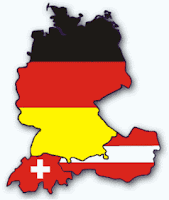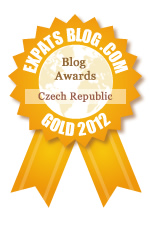
On the differences between the USA and
the UK, Oscar Wilde once said "We have really everything in common with America nowadays except, of course, language." Well the same thing applies to German.
Standard German,
Hochdeutsch, is what people learn in school. This is High German and it is understood throughout Europe. However within
Germany there are lots of very distinct dialects most notably Berlinerisch, Bayerisch, Hamburgerisch,
Hessisch, Pfälzisch, Saarländisch, Sächisch, Schwäbisch. There are more but these are the big ones. Most are mutually intelligible with the differences occurring in pronunciation, spelling, word usage, and grammar.
In
Switzerland, and in
Liechtenstein, there is Swiss German -
Schwyzerdütsch. Most Germans can't understand Swiss German. On German television, it's normal to show German subtitles during interviews with Swiss German speakers.
Living near the Austrian border I hear Austrian German which is another dialect.
Austria too has a few different dialects but the one I mostly run in to is
Wienerisch, the German spoken in
Vienna. To me Viennese accent sounds "stretched out" and spoken from the back of the throat. Vowels are lengthened a bit, especially at the end of a sentence, while word endings get "clipped". It sounds nice but I can't fake a Vienna accent.
Plus there's some vocabulary differences...
For "Good day" Germans say
Guten Tag. In Austria it is
Grüß Gott.
"Hello" in German is
Hallo. In Wien it is
Servus.
Germans say
Ich liebe dich for "I love you". In Vienna it is
I steh auf di.
"In the morning" is
am morgen except in Austria where it is
in der Früh.
A German bread roll is
das Brötchen but an Austrian one is
die Semmel.
Ein bißchen is "a little bit" in Germany. In Wien it is
a bissl.
In Germany you can get an
Aprikose, Kartoffel or
Pilz ("apricot, potato or mushroom"). In Wien you will get
Marille, Erdapfel or
Schwammerl.
Here's a short video I found out on YouTube that gives some examples of the differences between German German and Austrian German.
 I'm so glad that I already have my Czech permanent residency. Apparently the government plans to make it a wee more difficult beginning next year.
I'm so glad that I already have my Czech permanent residency. Apparently the government plans to make it a wee more difficult beginning next year. It looks like there will be a required eight-hour course covering every day situations in Czechland plus Czech culture and politics. The language exam will be more difficult too. Currently one only has to know 900 words and phrases but beginning next year it will go up to 2000.
It looks like there will be a required eight-hour course covering every day situations in Czechland plus Czech culture and politics. The language exam will be more difficult too. Currently one only has to know 900 words and phrases but beginning next year it will go up to 2000.



































